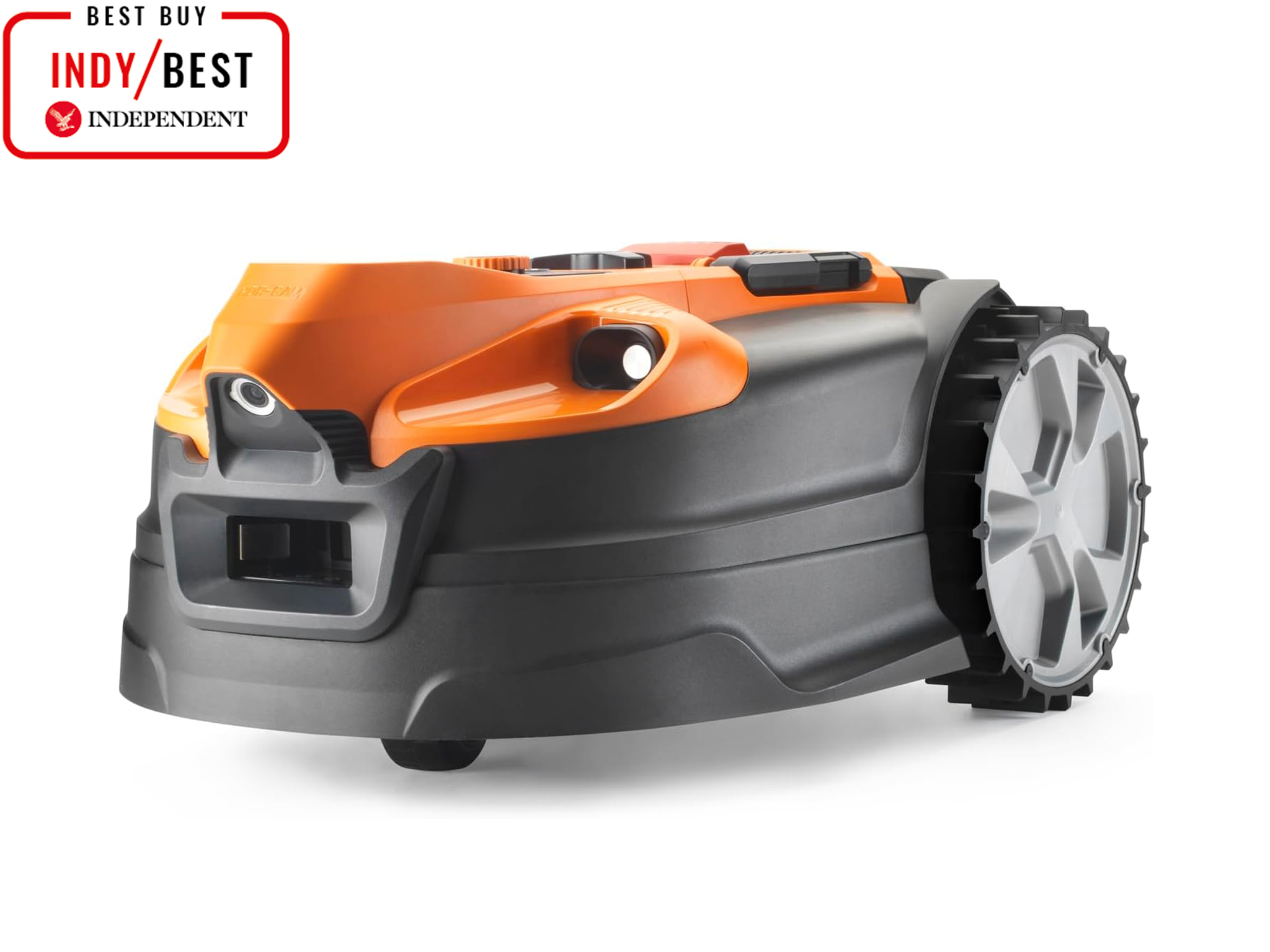
Stay up to date with notifications from The Independent
Notifications can be managed in browser preferences.
The Independent's journalism is supported by our readers. When you purchase through links on our site, we may earn commission. Why trust us?
10 best robot mowers to take the effort out of summer lawn care
Long on grass but short on time? Here are the machines that can help out

- 1
 2
2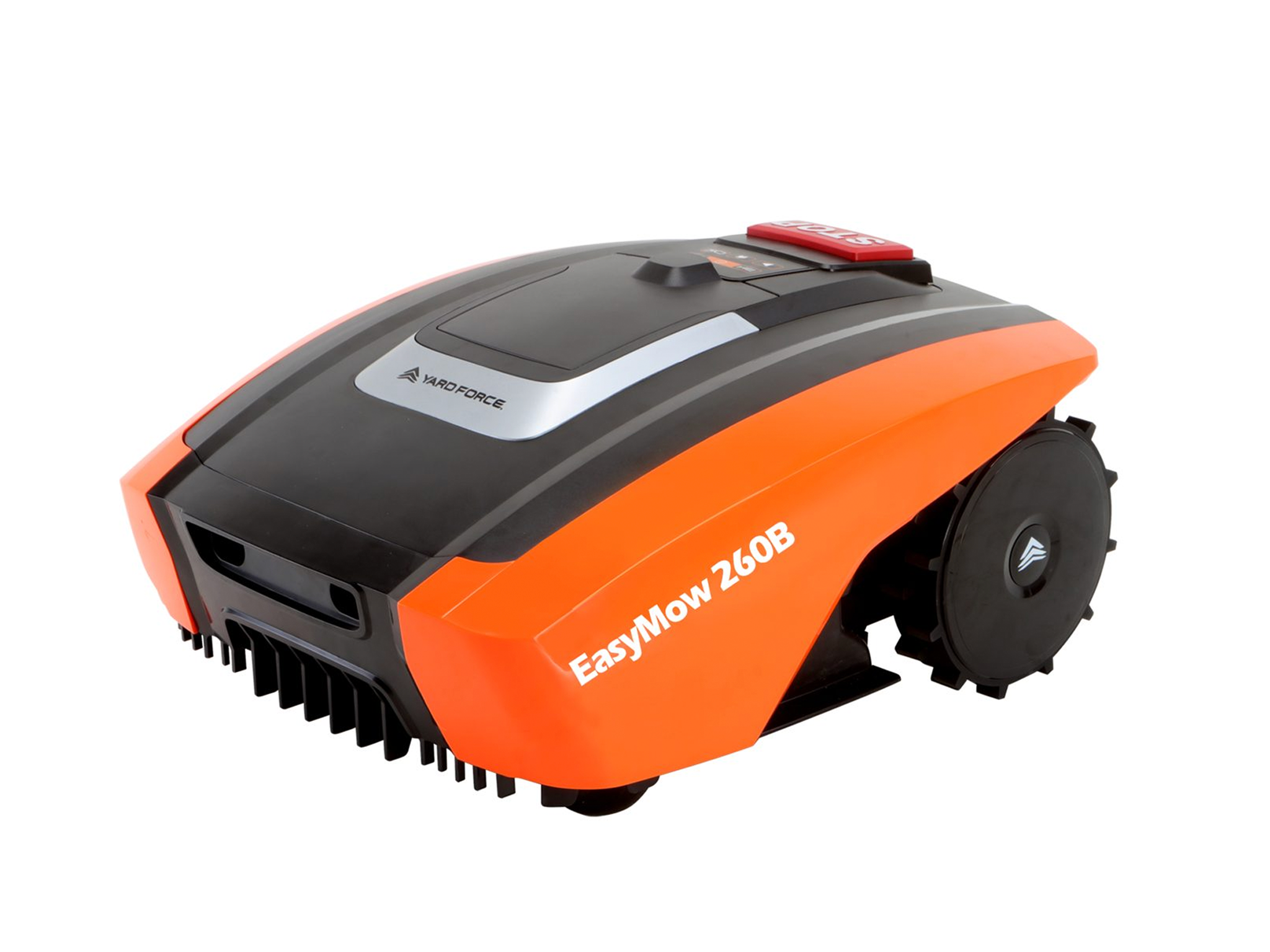
- 3
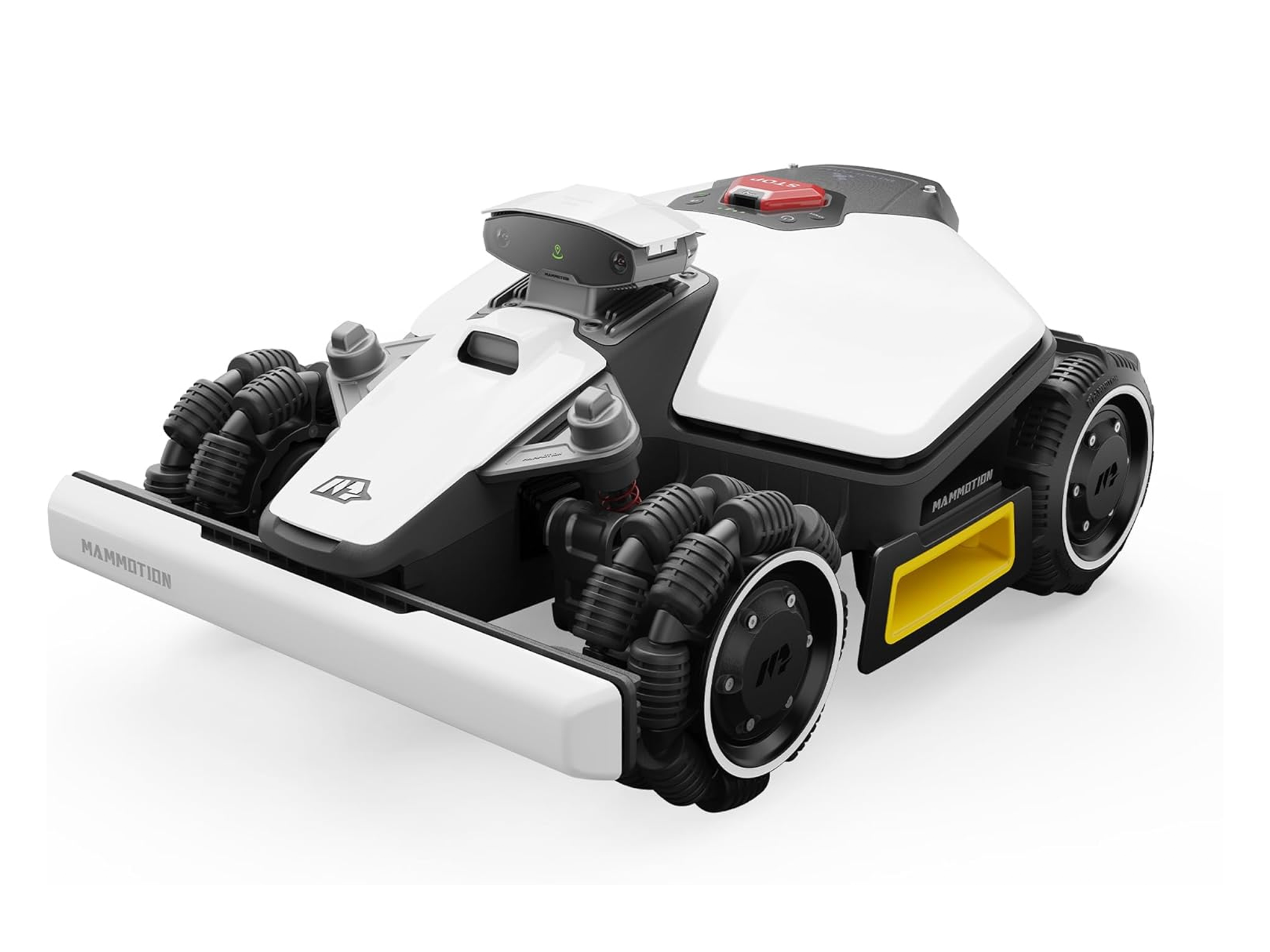 4
4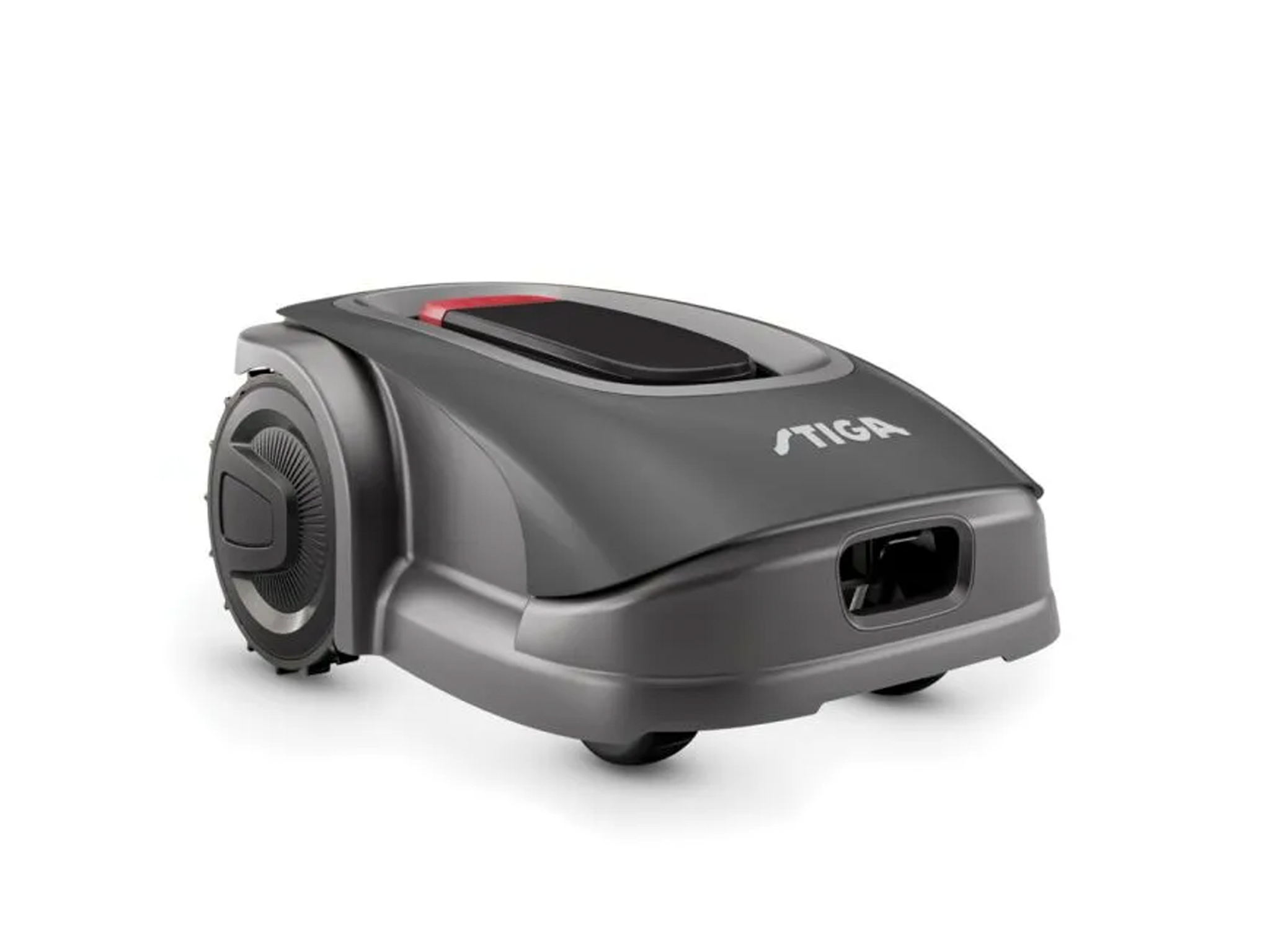
- 5
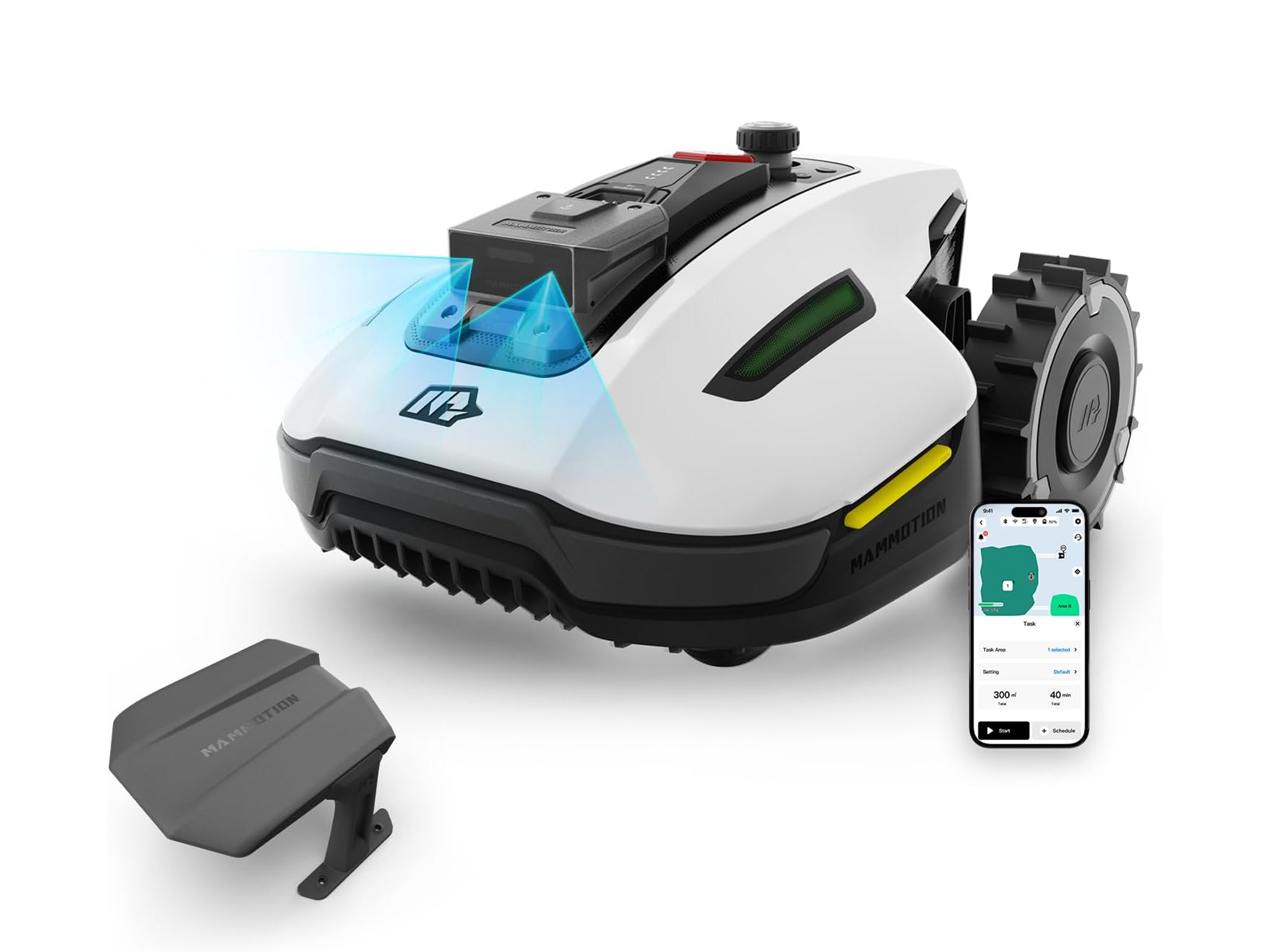 6
6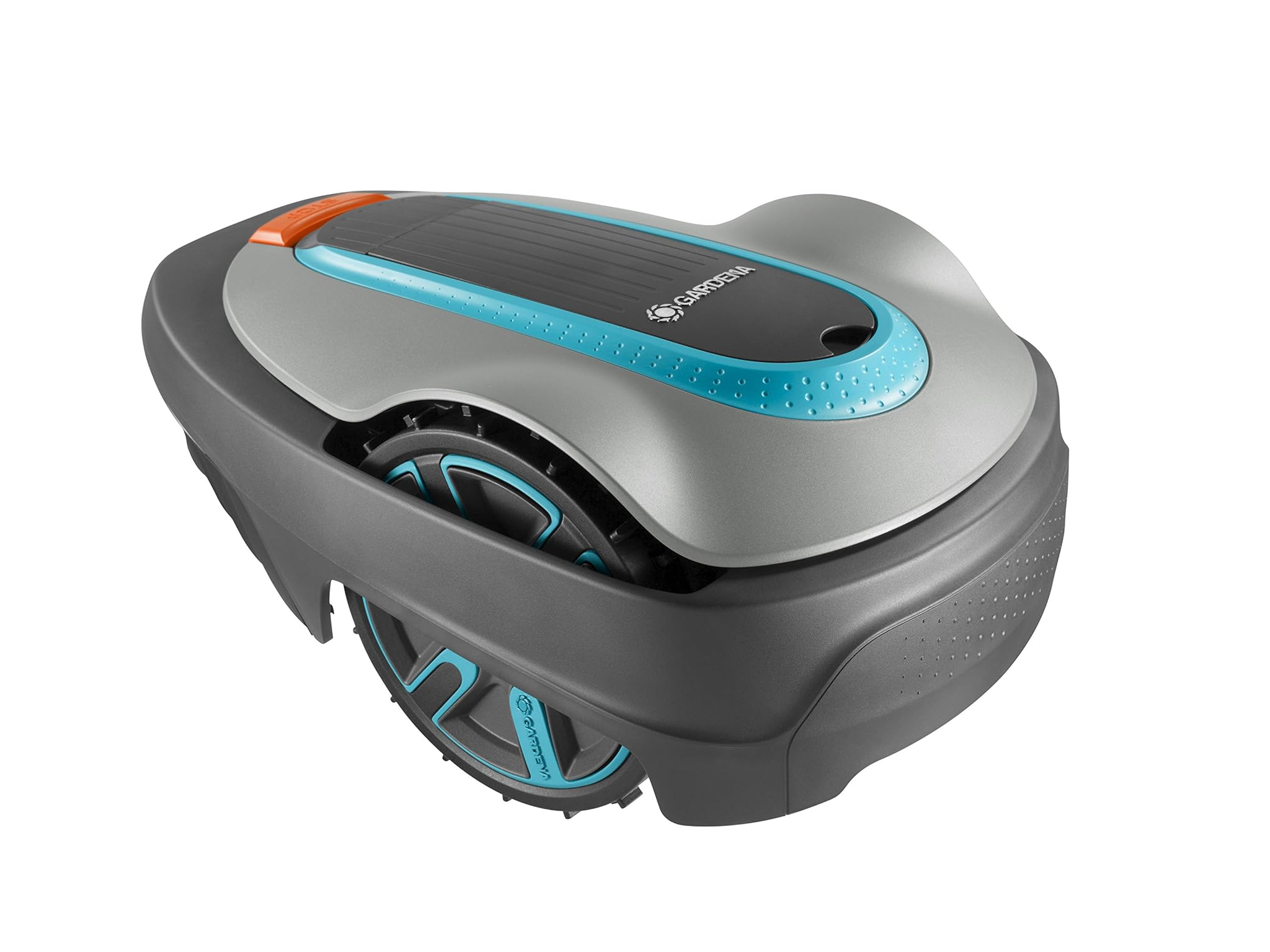
- 7
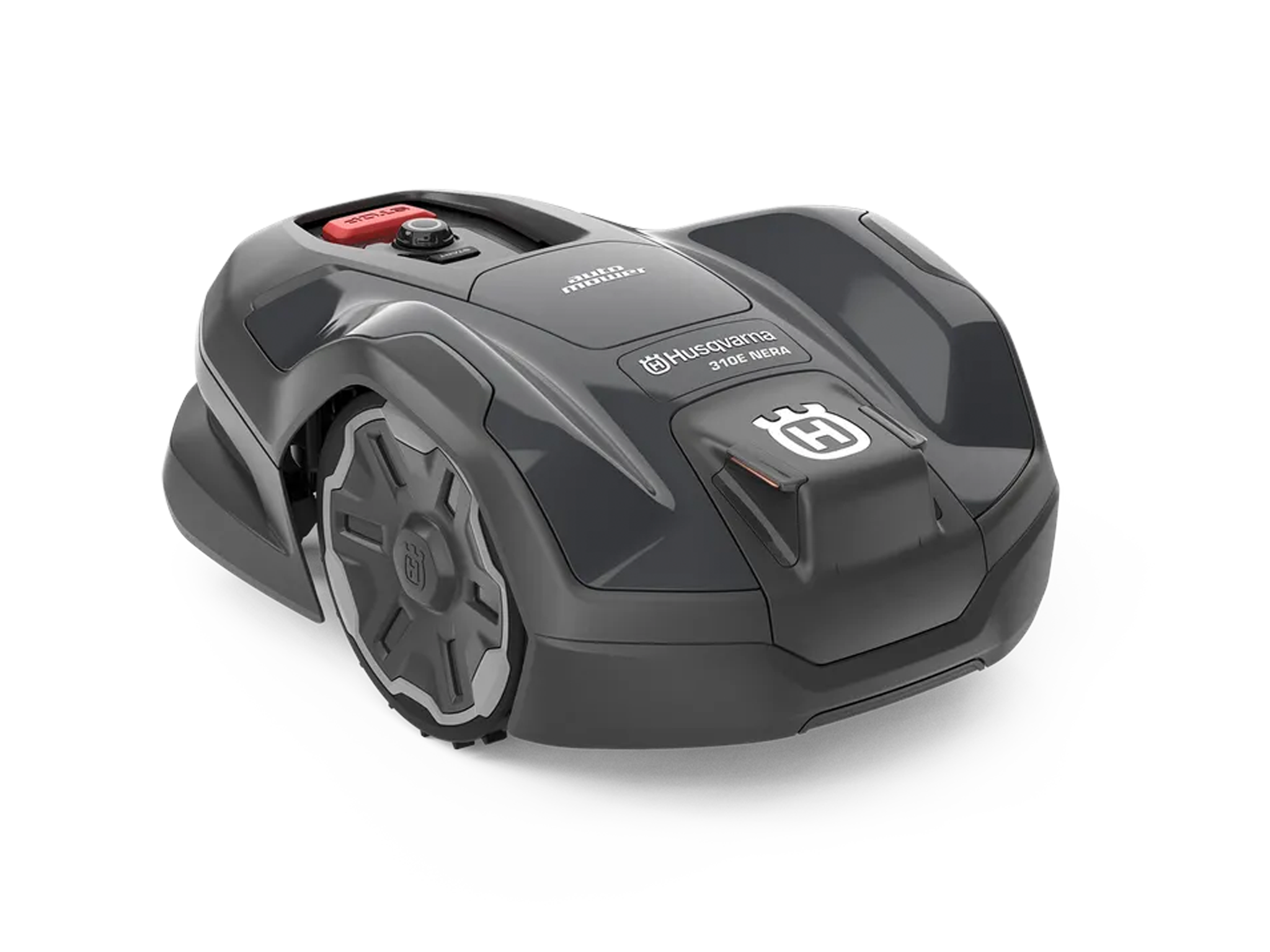 8
8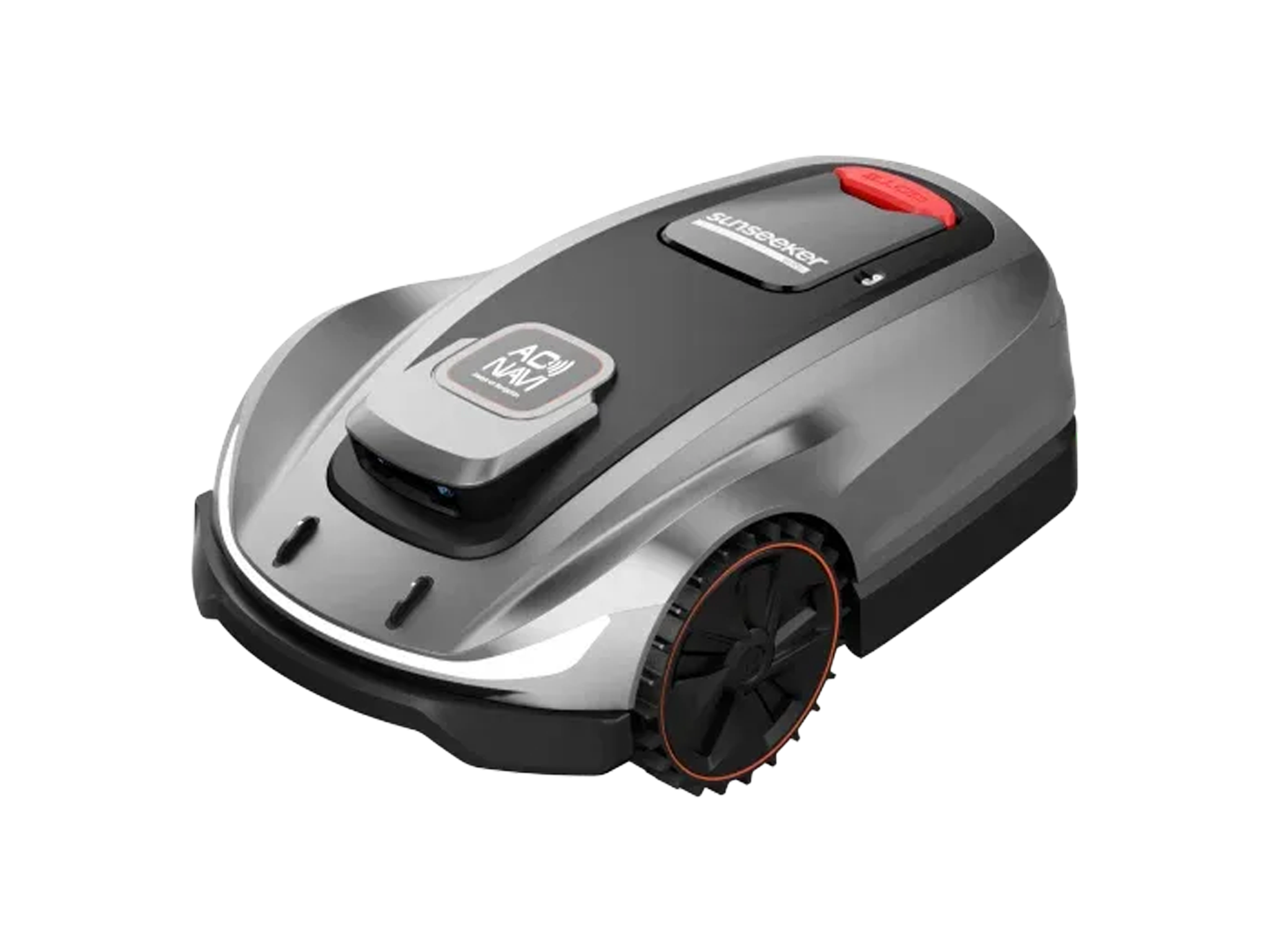
- 9
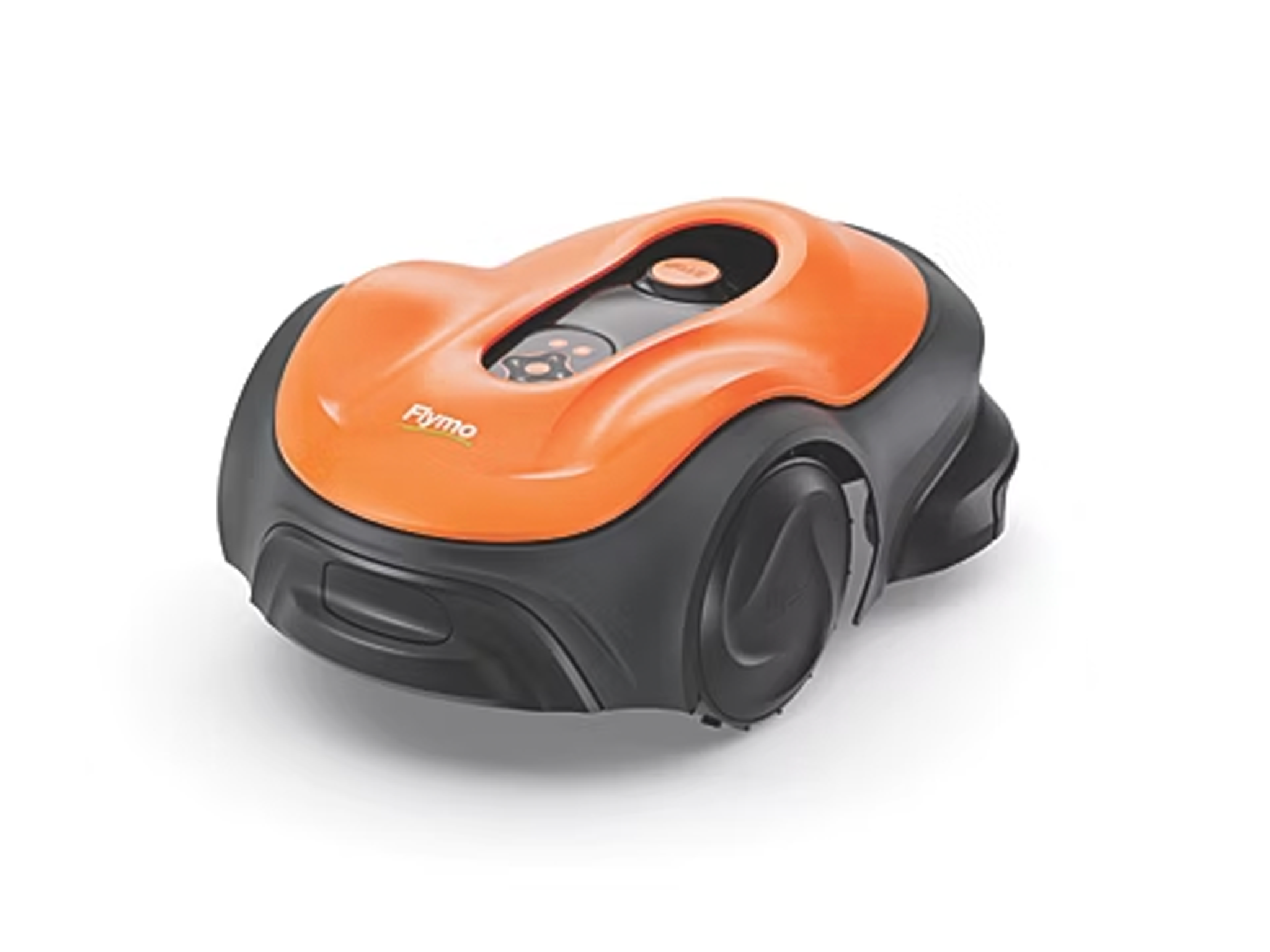 10
10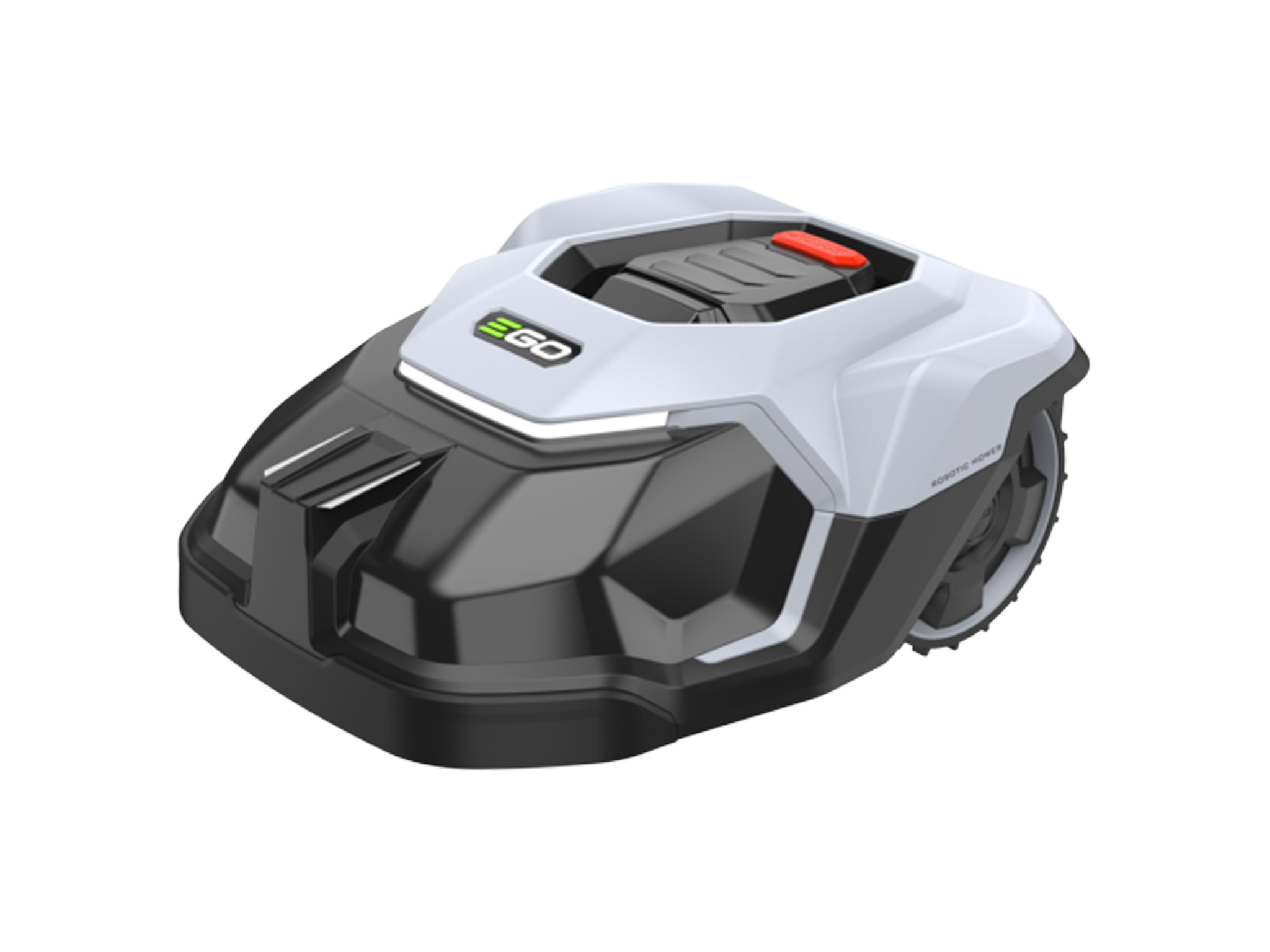
As we head further into the 21st century, many of us lament the lack of flying cars and wonder where the future’s gone. But there’s one sci-fi gadget that’s actually come to pass. The best robot lawnmowers will cut your grass while you put your feet up.
However, these clever garden gadgets have some big drawbacks. Many robot mowers work using a boundary wire placed around your lawn, but this is a lot of work to install.
There are an increasing number of machines that instead navigate by camera or GPS. This makes setup a lot simpler, as the machine only needs an antenna or reference (RTK) station to navigate.
But if you’ve ever shopped for a robot lawnmower, you’ll know that the biggest issue is the high price point. These robots are much more expensive than traditional mowers, and prices for the top models often start at £1500.
To figure out which models are actually worth your money, I put a range of robot mowers to the test.
How we tested
I tested a range of robot lawnmowers in my garden, but I also tried them on other lawns. I tested these in gardens from around 1/8th of an acre all the way up to large gardens of a couple of acres. Each of the gardens had the usual obstacles to navigate – paths, ponds, and garden furniture.
I set up each mower per its instructions, laying metres of boundary wire and establishing satellite connections. After that, I paid close attention to the navigation of each machine, to see how precise and organised its mowing patterns were.
As well as the overall finish, I assessed the quality and connectivity of the accompanying apps – did they give me total control over cutting heights, schedules and cutting zones? All the mowers that made my final edit passed the test and enabled me to get them mowing even when I was miles away.
Why you can trust IndyBest reviews
Jon Axworthy has been a feature writer since 1996 and has been contributing reviews to IndyBest since 2017. He specialises in the outdoors and has tried and tested plenty of garden products, from grass strimmers to traditional lawnmowers and much more.
The best robot lawnmowers for 2025 are:
- Best overall – LawnMaster OcuMow 18 MX: £499.99, Amazon.co.uk
- Best budget buy – Yard Force easymow 260B: £399.99, Yardforce.eu
- Best professional – Mammotion Luba mini AWD 800: £1,499, Amazon.co.uk
1LawnMaster ocumow 18 MX

- Best: Overall
- Recommended lawn size: 800m²
- Cutting height: 20-80mm
- Cutting width: 16cm
- Max slope: 35%
- Navigation: Camera
- Why we love it
- Good versatility
- Value for money
- No boundary wire
- Take note
- Charge time of 120 minutes
This is a wire- and app-free, drop-and-go mower. Like a robot vacuum cleaner, it uses a combination of an HD camera and sensors to figure out where your lawn ends. This is a game-changer, because it means there’s no faffing about with boundary wires or GPS antennae.
To get it working on my lawn, I just had to install and power up the base station, which took five minutes, and punch the cutting schedule into the LCD display.

This mower can recognise hard landscaping like gravel and paths, as well as organic obstacles like piles of mulch or raised edges.
Its randomised cutting pattern was very efficient for a medium-sized lawn, but it’s also good for lawn health. This mower can identify patchy grass and will steer clear, letting it grow back naturally. Over time, it makes for a much healthier lawn.
The only time the mower got into trouble was when it tried to mow a steep grassy drop-off on one side of the lawn, but this was easy to fix. I pegged the included 10m ‘no-go’ magnetic strip to act as a barrier, which solved the problem immediately.
£500 is hardly cheap, but this versatile mower offers incredible value for money compared with other options. Many of the robot mowers I’ve tested over the years cost three times as much.
2Yard Force easymow 260B

- Best: Budget buy
- Recommended lawn size: 260m²
- Cutting height: 20-55mm
- Cutting width: 16cm
- Max slope: 30%
- Navigation: Boundary wire
- Why we love it
- Well-priced
- Great cut
- Take note
- Charge time of 100 minutes
- Poor app
It’s worth taking your time over the laying of the boundary wire for this machine, as I had a few issues with breakages during operation, but I was satisfied with the performance of the 260B. The machine will give you just over an hour of cutting time, which is more than adequate for the small lawn areas for which it’s designed.
To begin with, I experienced some problems adding the device to the third-party CloudHawk app, but I had no issues setting up the work schedule and sending commands to the mower, whether I was at home or away. However, I found it much easier to operate the mower from the control panel.
You’re limited to three cutting heights, but the navigation of the machine, cut efficiency, and edge trimming were good. The machine has a front grass comb that stands the blades up for cleaner cuts.
3Mammotion Luba mini AWD 800

- Best: Professional
- Recommended lawn size: 800m²
- Cutting height: 20-65mm
- Cutting width: 200cm
- Max slope: 80%
- Navigation: GPS
- Why we love it
- Go-anywhere cutting
- Exceptional perfomance
- Take note
- Charge time of 160 minutes
If you want a mower that can handle trickier terrain and obstacles, you need this mower. I love Mammotion’s auto-mapping. The Luba receives all the info it needs to navigate via 4G or wifi, so it doesn’t need a reference station or a boundary wire.
I found that I had more than two hours of mowing on a single charge, which is excellent for a robot mower, and the intelligent and efficient navigation means this machine could mow a 250m² lawn (about the size of a tennis court) in that time. It automatically cuts to the edge where possible, as it straddles the border between the grass and any hard landscaping.
The Luba is a true off-roader, with four-wheel drive and a suspension system that easily rolls over all terrains. It handled lawn ruts well and even a few larger holes dug out by my dogs, and the 4WD means it can work up huge slopes of up to 80 per cent.
Its app connectivity and control were excellent, and you can store up to 20 map zones. It’s almost overpowered. If you really want to get the neighbours talking, you can create what Mammotion calls lawn “tattoos”, mowing letters and shapes into your grass. The only real drawback is that this all comes at a very high price. The best part of £2000 is a lot to pay for a tidy lawn.
4Stiga A8

- Best: GPS mower
- Recommended lawn size: 800m²
- Cutting height: 20-60mm
- Cutting width: 18cm
- Max slope: 45%
- Navigation: GPS
- Why we love it
- Effortless setup
- Great results
This proved to be an excellent ‘drop and mow’ machine. There’s no boundary wire to set up, and all that’s required to get the machine on the move is to go online and draw in the Google Maps-based virtual perimeter, and the digital map is then uploaded to the robot. The software even suggests the optimal position for the GPS antenna.
The A8 mowed for just over an hour on a single charge, so most domestic lawns will be knocked into shape pretty quickly. With first time pairing through the excellent Stiga.GO app, the mower uses what Stiga calls its active guidance system. This means that the mower optimises its cutting route according to the GPS reception, so it can mow in an organised, linear way.
However, you can also choose to have the mower cut in parallel, chequerboard or grid cutting patterns. Through the app, you can also program in zonal cutting, so you can set different cutting treatments in terms of height and pattern. Finally, the machine is Quiet Mark certified – after testing it, I don’t think it’ll annoy the neighbours.
5Mammotion yuka mini

- Best: For complex gardens
- Recommended lawn size: 600m²
- Cutting height: 20-60mm
- Cutting width: 190mm
- Max slope: 50%
- Navigation: GPS
- Why we love it
- Innovative features
- Excellent value
All you need to do with this robotic model is set up the base station, charge the mower and then let it go to work. This is thanks to the onboard iNavi service, which means you don’t have to set up a GPS station, because iNavi receives the data over 4G (or wifi if your garden has sufficient coverage).
The yuka mini mows in an N-shaped pattern, with the onboard algorithm letting the machine resume cutting where it left off in between charges. I found the navigation faultless.
This model allows for up to 15 custom zones in which you can set up unique schedules and mowing patterns – this makes it a great fit for complicated garden setups. I had about 50 minutes of mowing time on one battery charge, and after setting the cutting height, the deck floats and adjusts automatically, which is good if your lawn is a little uneven. This model can also straddle the boundary of the lawn and any hard landscaping, if you have any, to produce a very neat finish.
6Gardena smart sileno city

- Best: For smart homes
- Recommended lawn size: 500m²
- Cutting height: 20-50mm
- Cutting width: 16cm
- Max slope: 35%
- Navigation: Boundary wire
- Why we love it
- Smart home compatible
- Take note
- Charge time of 70 minutes
This boundary wire machine mowed for more than an hour on a single charge, and, when paired with the Gardena smart app, it gave me total control over the mower, no matter where I was.
It was easy to set the sileno city off to mow whether I was at home or away. The app lets you check on progress, set up no-mow zones or curate different settings for different areas of the garden.

Good GPS navigation ensured the mowing was optimised. The two cutting discs (with three pivoting blades) underneath mulched well and left a very well-maintained lawn behind.
The sileno city can also be added to your smart-home setup (Amazon Alexa, Apple HomeKit or Google Home), so you can operate it with voice commands – perfect for super-lazy Sundays.
7Husqvarna nera 310E

- Best: Premium mower
- Recommended lawn size: 1,000m²
- Cutting heights: 20-55mm
- Cutting width: 22cm
- Max slope: 30%
- Navigation: GPS
- Why we love it
- Good edging
- Perfect finish
- Take note
- No headlight
- Expensive
Whether it’s the foolproof GPS mapping (via the Automower Connect app) or the excellent navigation, there’s a lot to recommend the 310E. On one charge, I managed to get almost an hour’s worth of mowing. Unlike some robot mowers, this machine can identify areas that have already been covered, so it won’t double up on tasks.

When the sensors detect areas with longer grass, the machine’s spiral cutting function sends it into a spin while it cuts, so you don’t have a finish that looks patchy, and I had a medium-sized lawn looking great after just three sessions.
The app is very intuitive and enables you to set up ‘stay-out’ zones, which were particularly helpful when I was trying to establish some areas for rewilding. The mower also allows for the creation of areas that will trigger different cutting heights when the mower enters them. What stands out with this machine, though, is the efficiency of the mowing route and the superior quality of the final cut.
8Sunseeker X5

- Best: For mixed-terrain gardens
- Recommended lawn size: 2,000m²
- Cutting height: 20-60mm
- Cutting width: 22cm
- Max slope: 60%
- Navigation: GPS
- Why we love it
- Handles slopes with ease
- Take note
- Manual cutting height
This all-wheel drive mower uses GPS signalling (over 4G or wifi, so there’s no reference station to set up) to map the boundaries of your lawn in real time and navigate around them.
Its route planning was excellent, and its system of cameras and scanning software made for faultless obstacle avoidance, so the lawn doesn’t become a no-go area when it’s working.
The mower’s two large, rugged front wheels meant it never ran aground, and the all-wheel drive system coped well with the terrain. The floating cut system handled the undulating lawn and left clean edging behind it.
Meanwhile, the app was smooth and easy to navigate and puts you in control of no-go areas, eight different mowing zones and mowing schedules, which you can adjust according to the season.
9Flymo ultralife 600

- Best: Boundary wire mower
- Recommended lawn size: 600m²
- Cutting height: 25-45mm
- Cutting width: 16cm
- Max slope: 25%
- Navigation: Boundary wire
- Why we love it
- Quiet
- Take note
- Charge time of 70 minutes
After installing the boundary, this model cuts randomly, mapping the lawn every time it goes out. The machine was able to mow for 50 minutes on one charge, with the three pivoting blades taking care of the grass and leaving a very satisfying finish, with good mulching.
Even though the boundary wire has to be installed 35cm from the hard boundary, the design of the mower and cutting disc placement meant the 600 still did a good job of getting as close to the edge as possible, so I didn’t have to whip around the boundary with a grass trimmer once it had finished.

The onboard sensors navigated well and optimised the efficiency of the mow, and the machine paired smoothly with the app – I was able to start and stop the machine whether I was at home or away, making for an easy life.
10Ego RM2000E

- Best: For large gardens
- Recommended lawn size: 2,000m²
- Cutting height: 2-9cm
- Cutting width: 24cm
- Max slope: 50%
- Navigation: Boundary wire
- Why we love it
- Good battery life
- Take note
- Multi-zone cutting requires manual lifting
This boundary wire model is Ego’s first foray into robotic cutting, and it works in a randomised pattern.
Ego’s battery platform has always been excellent, and the mower managed more than two hours of cutting on a single charge during testing, which was pretty impressive, although this time was reduced if it had to deal with gradients. The RM2000E was at home in open spaces, leaving a smooth, even cut behind.
Pairing and connectivity through the Ego Connect app were solid, with the mower either cutting from the boundary wire in a spiral pattern if the grass is long, or systematically in parallel. Commands for the machine, from cutting schedule to height, can either be achieved through the control panel on the mower itself or the Ego app. It is possible to cut another area enclosed by wire, but you will have to move the mower by hand from one area to the other.
Robot mowers FAQs
What safety measures do robot lawnmowers have?
While it’s always important to be cautious and teach kids about the dangers of gardening machinery, robot mowers are equipped with plenty of safety features to ensure pets and children are out of harm’s way. Blades are housed well under the unit to prevent accidental contact, and the mower will instantly stop the blade motor if it’s picked up or knocked. On-board cameras can spot obstacles near the mower and navigate around them, while some mowers can emit a loud beeping noise to warn off pets and wildlife in their path.
Do robot lawnmowers work on uneven lawns?
Robot mowers work on uneven and sloped lawns, but as with any mower, you’ll get the best results with a perfectly even lawn. Robot mowers allow you to set the cutting height, which helps compensate for any lumps and bumps in your lawn. With a bit of trial and error, you can find the ideal setting for your garden. Most robot mowers are powerful enough to deal with steep slopes, too.
The verdict: Robot mowers
In a market crowded with expensive machines bristling with tech, the LawnMaster OcuMow 18 MX has concentrated on sensors and software to create a machine for homeowners who crave the convenience of robotic mowing without having to splurge. If you’re on a tighter budget, you can try the Yard Force easymow 260B. Lawncare obsessives, however, will get a lot out of the Mammotion Luba mini AWD 800.
Want more recommendations? Check out our guide to the best hedge trimmers




